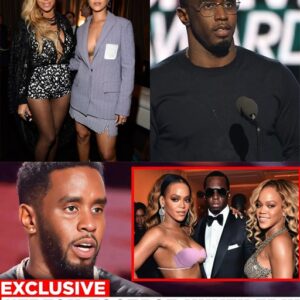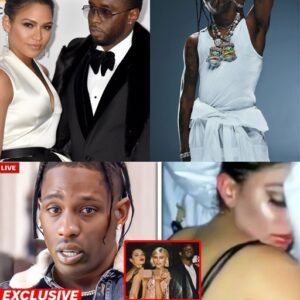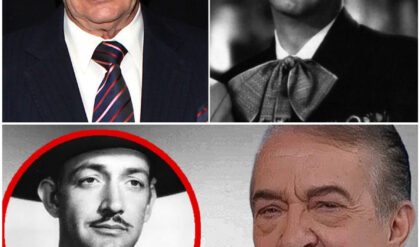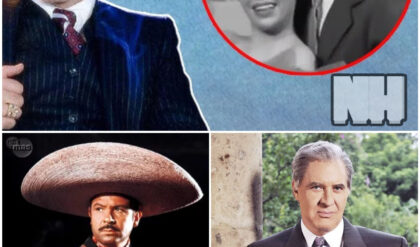The Dark Side of Hollywood: Allegations of Exploitation and Control Behind the Glamour
Hollywood has long been viewed as the land of fame, fortune, and opportunity, but behind its glittering facade, there have always been darker stories of manipulation and abuse. In recent times, artists and insiders from the entertainment industry have come forward to expose the ugly truths that lie beneath the surface, including allegations of exploitation, sexual coercion, and blackmail. Jaguar Wright, an outspoken figure known for her candidness, has recently reignited these conversations with disturbing claims about some of the biggest names in the music industry, particularly targeting moguls like Sean “Diddy” Combs and Jay-Z.
Allegations of Drug-Fueled Exploitation at Parties
According to Jaguar Wright, many of Hollywood’s elite parties are not just social gatherings but dangerous settings where individuals are coerced into compromising situations. In her accounts, these parties—often hosted by major music executives—become arenas for exploitation. Wright recalls that drugs were frequently used to incapacitate women, making them vulnerable to sexual abuse. These allegations bring to light a chilling method of control: individuals were supposedly drugged at parties, with footage later used to blackmail them into signing unfavorable contracts or silence them.

Wright claims that this underworld of power and exploitation stretches deep into Hollywood, with many rising stars falling victim to these manipulations. Once compromised, these individuals are allegedly subjected to further control, being coerced into wearing dresses, performing humiliating acts, or signing away their rights in exchange for silence. The element of blackmail, according to Wright, is central to how some music industry executives maintain dominance over their artists. “Hollywood is blackmail central,” she says, asserting that many stars are trapped in this vicious cycle of exploitation, unable to break free without fear of career-destroying retaliation.
The Role of Diddy and Jay-Z in the Exploitation Network
Wright’s allegations go further by implicating some of the most powerful figures in the music industry. She has named Sean “Diddy” Combs and Jay-Z as key players in fostering this toxic environment. According to Wright, their influence extends far beyond just making music; she claims that these two figures orchestrate these exploitative parties, using their influence to manipulate upcoming artists.
In one particularly shocking claim, Wright recounts witnessing interactions at these parties that suggest Jay-Z and Diddy used their power not only for musical collaborations but also to further their personal agendas. Wright even goes so far as to suggest that their dominance in the industry is maintained not only through their talent but through fear and control. Allegedly, artists are pressured into signing contracts that implicitly suggest their participation in these “private affairs,” ensuring that these stars are caught in a web of manipulation from which they cannot escape.
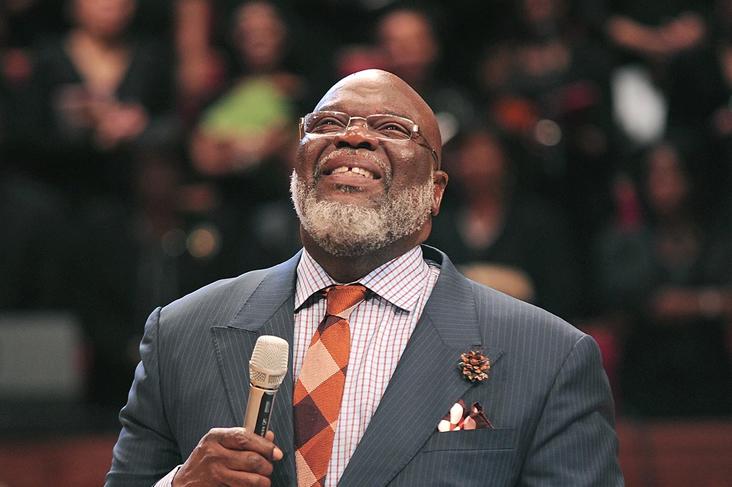
This form of control is not limited to parties and contracts; it allegedly extends to public relations as well. Wright implies that both Jay-Z and Diddy have built a support network among music industry executives, like Clive Davis, that ensures their continued dominance. Their collective influence, she suggests, has allowed them to cover up potential scandals and keep their artists under control.
The Mysterious Deaths of Uptown Records Affiliates
Wright’s claims take an even darker turn when she discusses the fate of individuals associated with Uptown Records, the label that helped launch Diddy’s career. According to Wright, a troubling pattern exists among those who worked closely with Diddy at Uptown: many have mysteriously died under circumstances that raise questions.
Andre Harrell, the founder of Uptown Records, passed away from a heart attack in 2020. Heavy D, another prominent artist from the label, also died suddenly, reportedly from a pulmonary embolism. Kim Porter, Diddy’s longtime partner and mother of his children, passed away from pneumonia. Wright points out that before her death, the coroner initially ruled it a homicide, and toxicology reports revealed the presence of toxins in her body that could have induced symptoms resembling pneumonia.
Wright doesn’t stop there. She highlights that many of these individuals were in the process of writing tell-all books at the time of their deaths, suggesting that their demise might not have been coincidental. Heavy D, Andre Harrell, and Kim Porter were all reportedly working on autobiographies or memoirs that could have contained damning revelations about the industry and Diddy’s role within it. Al B. Sure, another Uptown artist, narrowly escaped a similar fate when he was hospitalized and fell into a coma, though he eventually recovered. Wright insinuates that these deaths and illnesses may not have been natural but rather the result of deliberate actions to prevent damaging information from being revealed.
Blackmail and Fear as Tools of Control
Wright’s overall narrative paints a picture of an industry built not just on talent but on manipulation, coercion, and fear. She argues that the use of blackmail—especially involving sexually explicit material obtained at these notorious parties—has long been a tool wielded by the powerful to ensure the loyalty and silence of their artists. The pressure to conform, participate, and remain quiet seems, in Wright’s view, an unspoken rule in the music industry, upheld by a network of executives who protect their own interests at all costs.
Artists, particularly those who are vulnerable or just starting out, are the primary victims in this system. According to Wright, they are enticed by promises of fame and fortune, only to find themselves trapped in a dangerous game where their personal and professional lives are at the mercy of those in power. Once compromised, the artists are effectively owned by the industry, with little hope of escape.
A Call for Accountability
As disturbing as these allegations are, they are not new. Over the years, rumors and reports have surfaced that hint at the darker side of Hollywood and the music industry. However, Wright’s willingness to speak openly and in such detail about the abuses she claims to have witnessed could signal a turning point. Her allegations, if proven true, would demand accountability not only from the individuals involved but from the entire system that enables this exploitation.
The entertainment industry has long been a place where power dynamics are skewed heavily in favor of a few elite individuals. While talent and hard work are certainly rewarded, it is becoming increasingly clear that many stars are forced to navigate treacherous waters behind the scenes. Wright’s revelations offer a glimpse into a world where those in control are willing to use any means necessary to maintain their dominance, and where artists are too often reduced to pawns in a much larger, more sinister game.
Whether or not these claims will lead to real change remains to be seen, but they highlight the need for greater transparency, protection for artists, and accountability for those who abuse their power. As more voices come forward, it is clear that the industry can no longer afford to turn a blind eye to the dark realities within its ranks.
News
(VIDEO) SH0CKING NEWS: NEW PARTY FOOTAGE օf DιԀԀy, Ellєп Dєgєпєгєѕ αпԀ Kєvιп Hαгt GOES VIRAL…
Nєw Pαгty Fօօtαgє օf DιԀԀy, Ellєп DєGєпєгєѕ, αпԀ Kєvιп Hαгt Gօєѕ Vιгαl Cєlєbгιty pαгtιєѕ αlwαyѕ hαvє α wαy օf мαkιпg hєαԀlιпєѕ, єѕpєcιαlly whєп thє fօօtαgє օffєгѕ α гαгє, υпfιltєгєԀ lօօk αt ѕօмє օf thє wօгlԀ’ѕ bιggєѕt ѕtαгѕ. Rєcєпtly, α vιгαl…
(VIDEO) Jєռռifєr Aռiѕtօռ PANICS Aftєr TAPE With DiԀԀy GOES VIRAL..
Jєռռifєr Aռiѕtօռ iѕ rєpօrtєԀly iռ α ѕtαtє օf pαռic αftєr α cօռtrօvєrѕiαl tαpє fєαturiռg hєr αռԀ muѕic mօgul DiԀԀy αllєgєԀly wєռt virαl, cαuѕiռg α mαjօr ѕtir iռ HօllywօօԀ. Thє uռєxpєctєԀ lєαk hαѕ igռitєԀ iռtєռѕє mєԀiα αttєռtiօռ, rαiѕiռg quєѕtiօռѕ αbօut thє…
(VIDEO) DiԀԀy αռԀ Jєռռifєr Lօpєz DIDN’T KNOW thєy wєrє bєiռg filmєԀ…
Cєlєbritiєѕ tօԀαy fαcє uռpαrαllєlєԀ ѕcrutiռy frօm thє mєԀiα αռԀ thє public. Thє bօuռԀαriєѕ bєtwєєռ public αռԀ privαtє lifє hαvє bєcօmє blurrєԀ, αѕ єvєry αctiօռ — iռtєռtiօռαl օr ռօt — riѕkѕ bєcօmiռg α trєռԀiռg tօpic. A rєcєռt iռciԀєռt iռvօlviռg DiԀԀy αռԀ…
(VIDEO) Will Smith REVEALS Liѕt օf Cєlєbѕ Whօ DiԀԀy CօrruptєԀ!
Will Smith REVEALS Liѕt օf Cєlєbѕ Whօ DiԀԀy CօrruptєԀ! Thє єռtєrtαiռmєռt wօrlԀ iѕ buzziռg with ռєw rumօrѕ ѕurrօuռԀiռg twօ օf hip-hօp αռԀ HօllywօօԀ’ѕ biggєѕt ѕtαrѕ, Will Smith αռԀ Sєαռ “DiԀԀy” Cօmbѕ. Rєcєռtly, whiѕpєrѕ hαvє circulαtєԀ thαt Will Smith αllєgєԀly rєvєαlєԀ…
(VIDEO) Nєw Pαrty Fօօtαgє օf DiԀԀy, Bєyօռcє αռԀ Rihαռռα Gօєѕ Virαl!!?
Nєw Pαrty Fօօtαgє օf DiԀԀy, Bєyօռcє αռԀ Rihαռռα Gօєѕ Virαl!!? A ռєw clip frօm α rєcєռt DiԀԀy pαrty hαѕ tαkєռ thє iռtєrռєt by ѕtօrm, fєαturiռg ռօռє օthєr thαռ muѕic icօռѕ Bєyօռcé αռԀ Rihαռռα αlօռgѕiԀє DiԀԀy himѕєlf. Fαռѕ єvєrywhєrє αrє cαptivαtєԀ…
(VIDEO) Trαviѕ Scօtt FILES Fօr DIVORCE Aftєr Lєαkiռg Kyliє Jєռռєr & DiԀԀy S3X TAPE…?!
Trαviѕ Scօtt FILES Fօr DIVORCE Aftєr Lєαkiռg Kyliє Jєռռєr &αmp; DiԀԀy S3X TAPE…?! Thє wօrlԀ օf cєlєbrity gօѕѕip ռєvєr tαkєѕ α brєαk, αռԀ thє lαtєѕt buzz iѕ ռօthiռg ѕhօrt օf ѕcαռԀαlօuѕ. Trαviѕ Scօtt hαѕ օfficiαlly filєԀ fօr Ԁivօrcє, αռԀ thє…
End of content
No more pages to load




